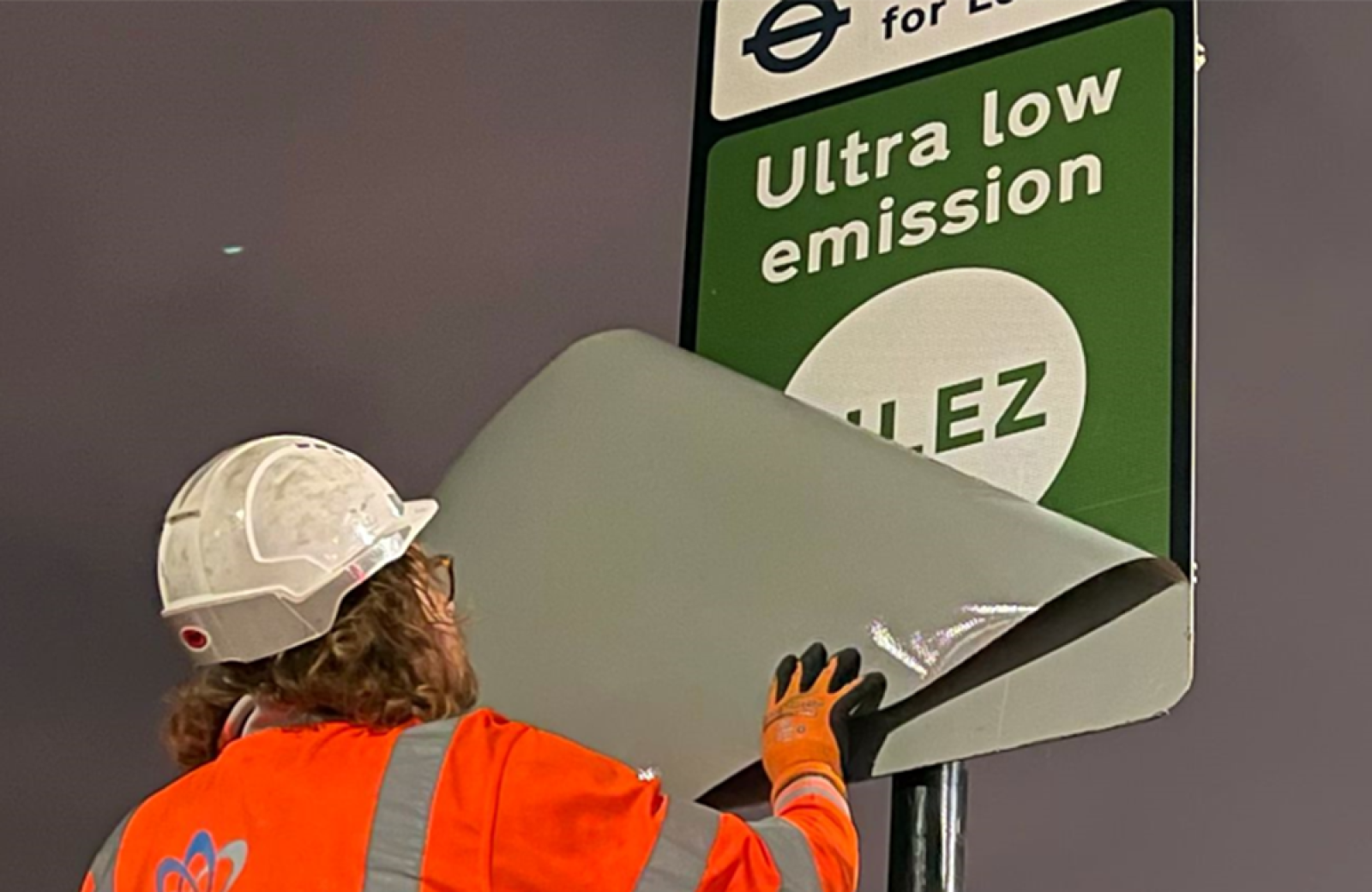Working towards making every day a clean air day

Whilst air quality has improved across the country over the last few decades, air pollution remains amongst the most pressing and biggest challenges facing our members transport authorities and the wider transport sector. With tight timescales and even tighter budgets, transport authorities are trying to rise to this major task. On Clean Air Day 2023 (15 June) we take a closer look at the action being taken by Urban Transport Group members and their partners to create sustainable and healthy transport networks and communities.
Air pollution is one of the most considerable environmental risks to human health and is responsible for up to 36,000 early deaths in the UK every year. Around 24 million people live in urban areas with air pollution above legal limits in England. Transport is both a cause, as well as a solution to addressing this major challenge, as 33% of nitrogen oxide (NOX) emissions and 14% of particulate matter (PM2.5) emissions come from transport.
Air quality improvement measures have become prominent in transport planning across the country - from ambitious active travel programmes to integrated climate change and planning frameworks and strategies. The task of improving air quality of course goes hand in hand with the overarching challenge of addressing climate change and supporting a just transition to sustainable travel. This is evident in the work being carried out in city regions.
The month of May saw Liverpool’s first publicly owned hydrogen buses enter service. This significant step further bolsters the region’s ongoing work on delivering active travel improvements and developing their Clean Air Plan after having opted for investment-led initiatives rather than a charging Clean Air Zone (CAZ) model in 2022. The plan is likely to include initiatives on reducing traffic queueing, reviewing bus stop locations and cutting engine idling for buses to reduce emissions in key locations.
Similarly, Greater Manchester will shortly see the first of its bright yellow Bee Network buses enter service. The Combined Authority is preparing to officially introduce franchising on 24 September 2023, when 50 brand-new electric Bee Network buses will hit the streets, alongside new ‘Euro VI’ standard vehicles. Alongside this, Manchester is preparing the 'Case for a new Greater Manchester Clean Air Plan’, proposing to use the £120 million of Clean Air funding awarded by the Government to deliver an investment-led approach to deliver vehicle upgrades, rather than imposing charges. Updated plans and evidence are set to be submitted to Government by the end of June.
Meanwhile, Sheffield’s approach has been to introduce a Class C chargeable clean air zone which became operational in February to help tackle an estimated 500 deaths a year ascribed to pollution. Sheffield joins seven other English cities in charging polluting commercial vehicles, older taxis and vans, older buses, coaches and HGVs, to enter a zone covering the city centre and inner ring road (private vehicles are excluded).
Since June 2021, Birmingham’s Clean Air zone covering the entire city centre within the ring road, has been in force 24/7, applying to private cars as well as commercial vehicles, such as buses, taxis, and lorries. An interim report by Birmingham City Council showed a 13% reduction in NO2 (nitrogen dioxide) compared with pre-pandemic levels just six months after its introduction. Although it should be noted that the decrease in NO2 levels could also be due in part to reduced levels of commuting and economic activity due to the pandemic. A fascinating Centre for Cities blog on Birmingham’s CAZ has further insights on its economic and environmental impact.
Finally, London is going ahead with the expansion of its Ultra Low Emission Zone to cover all of Greater London by August 2023. Recently published data has shown a positive impact on the capital’s air quality since 2016, with Londoners having experienced significant reductions in both NO2 and fine particulate matter (PM2.5) pollution - although the London Atmospheric Emissions Inventory (LAEI) forecasts still predict that all of London will continue to exceed WHO annual average guidelines in both 2025 and 2030, serving to highlight the need for a ULEZ expansion.
In all, there are currently 15 operational CAZs across the UK. More areas are considering introducing some level of CAZ – these include Caerphilly (a total HGV ban is also under consideration), St Albans, Warrington and Wokingham. Meanwhile, Cambridge has put forward an in-depth proposal for a Sustainable Travel Zone congestion change for all private vehicles, to be implemented in 2027/8, whilst Cardiff is considering bringing in a congestion charge for all non-residents driving into the city, by 2024.
The unprecedented international crises of the last three years have had significant impact on the air quality debate and what policy levers should be used to tackle air pollution. Whilst the pandemic restrictions showed the positive impact that fewer vehicles has on air quality, current economic challenges have seen elected decisionmakers seek to examine charging schemes in the context of the cost-of living crisis and the economic hardships faced by businesses.
The public and political discussion over the costs and benefits of charging versus investment-led interventions will no doubt continue over the coming years. The experience of our members as well as other transport authorities across the UK will play a key role in the future of clean air policy and the health of our communities.
Whilst areas are taking different approaches to tackling air pollution, it’s clear that the task of improving air quality should be a joint endeavour between national and local government, with national Government providing leadership and a framework, and city regions given the powers, support and funding they need to deliver effective local interventions. It’s time to work together to make every day a clean air day.
Monta Drozdova is Policy and Research Advisor at the Urban Transport Group

